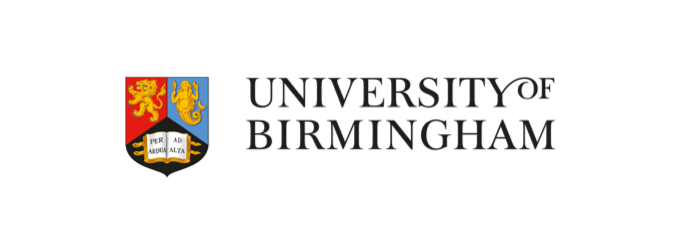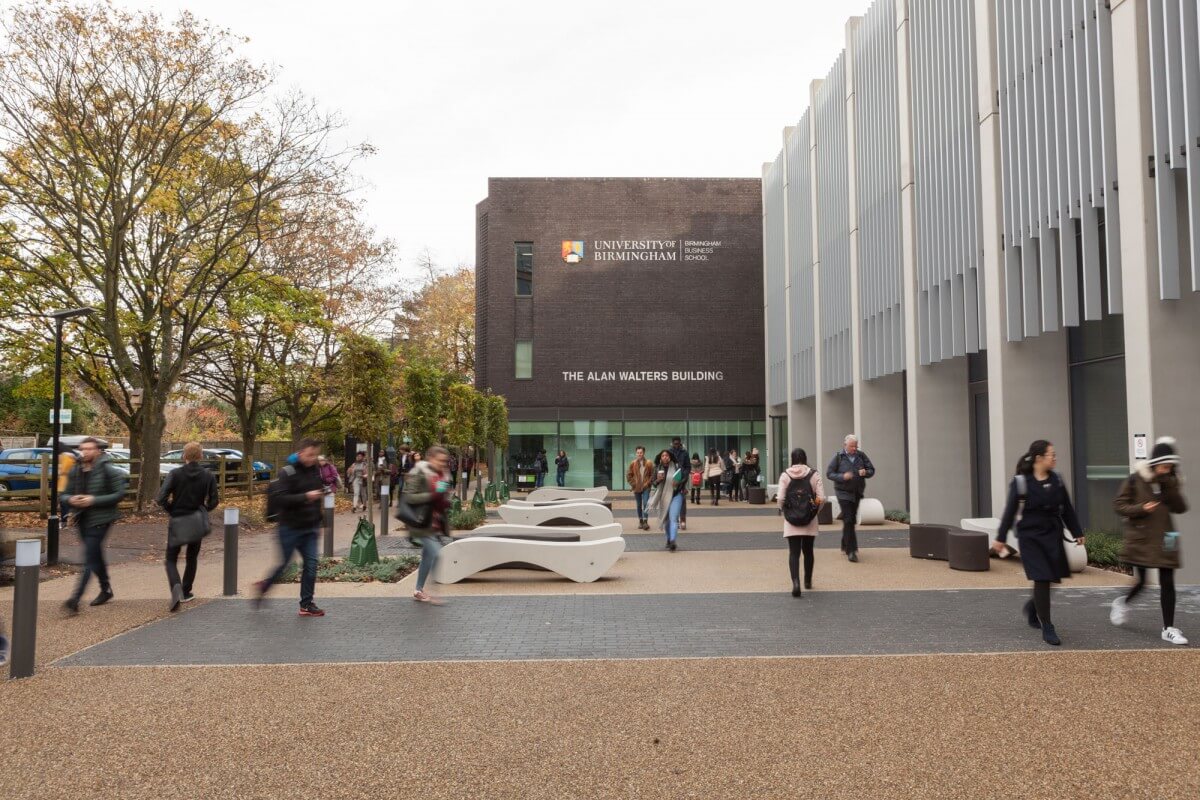Dr. Joe Spencer-Bennett’s long career in language and linguistics began at A Level where he discovered “how fascinating language could be.” An undergraduate degree, master’s and PhD in this dynamic field followed, before landing a role as a lecturer in the University of Birmingham’s Department of English Language and Linguistics.
Today, he’s the head of department. “The Department of English Language and Linguistics is a really exciting department to be part of. It’s very diverse and does such exciting work in so many areas,” says Joe. “So being head of the department is a real honour, and means that I get to learn a lot about all of the areas that we teach and research; metaphor, sign languages, gesture studies, corpus linguistics, English Language teaching, and many others.”
His foremost love is still teaching. “I especially like teaching about the theories that we use to make sense of language,” says Joe. “Language is so ubiquitous and it’s so important in human life that there are all kinds of ways in which we can look at it and all kinds of other things that it touches on, like politics, psychology, sociology, and, of course, education.”
It’s a compelling view of language — and the very kind offered in the University of Birmingham’s MA Teaching English to Speakers of Other Languages (TESOL).

The University of Birmingham is ranked as one of the world’s top 50 institutions to study English Language and Literature in the 2021 QS World University Rankings. Source: University of Birmingham
Ideal for those with less than one year’s language teaching experience, the programme explores different approaches to the teaching and learning of English. It also studies the close relationship between language teaching theory and practice. Students consider how the concepts, theories and methodologies that they encounter during their course of study will be of practical use in their own teaching career.
Modules reflect what today’s language learners need. The “Second Language Learning and Teaching” — a core module on TESOL programmes — explores different theories of language education, from traditional approaches like grammar translation to what are sometimes seen as more radical approaches like total physical response (which involves using the whole body) and the silent way (which involves the teacher saying little or nothing at all!).
“One fascinating thing about the module is the way in which it thinks about the pros and cons of these different approaches but also tries to understand why various people in various times and places have thought it appropriate to teach language in different ways, and how that reflects their ideas about how language works, or about how classroom dynamics work, or about what is going on when human beings learn things in the most general sense,” says Joe.
In the “Globalisation and Language Education” module, students look at the ways in which language education is involved in cultural and political processes of globalisation, why some people in some places learn a language like English and why others might not, and how that relates to the ways in which we understand our identities. For the “Corpus Linguistics” module, students get to use large databases of language in order to identify patterns and structures in language use.
“Those large databases are the ‘corpora’ (the plural of ‘corpus’). Birmingham was one of the pioneers of Corpus Linguistics at the end of the 20th century, for example by producing one of the first English language dictionaries to make use of information from a corpus,” says Joe. “It’s a tradition we continue today with this module and with all kinds of research that goes on in the department, looking at things like the ways in which forms of English around the world vary in terms of subtle grammatical details, or at how particular words and phrases are used on Twitter, or at the longer-term historical development of English.”

The MA TESOL is tailored to one’s level of experience, with plenty of exciting conferences, seminars and social events to take part in. Source: University of Birmingham
Learning any of the above is a thoroughly practical endeavour at the University of Birmingham. At the end of the MA TESOL, students can choose to take on a Teaching Project instead of a traditional dissertation. The Teaching Project allows students to explore the ways in which they can put their theoretical expertise to use in the classroom.
“Equally, many students who do undertake traditional research projects do so in ways that are closely focused on their future career goals, for example, by assessing the usefulness of particular teaching approaches or materials, or by investigating the implications of particular pieces of language or education policy,” says Joe.
An MA TESOL from a Top 50 English Language and Literature department in the world (QS 2021) is set to impress any employer. But any transition to university and from university to career is still challenging, and some students may feel overwhelmed. Then there are the stresses from assignments, research projects and even finances as well. Recognising this challenge, the university offers a variety of support such as personal tutors, access to the Academic Writing Advisory Service (AWAS) and Career Network.
“Students very often enter our programmes with a clear sense of what they want to do when they graduate, and the university’s Career Network, and their Personal Tutors are there to support with that from the very start,” says Joe. “Other students don’t have such a clear idea, and take our programmes because they are fascinated by language – the reason that I did my own MA at Birmingham fifteen years ago! – and of course the same kind of support is available for those students too.”
This constant support and guidance through each step of their academic journey have been helpful to many students — equipping them with the linguistic and pedagogic knowledge, the research and analytic skills, and the confidence necessary to begin a career in English language teaching.
“The courses are designed as such that they equip one with the necessary tools for further research based studies in the field or professional teaching. The highlights of the programme are the fundamentals of research methods, teaching methodology, lexis and pedagogic grammar,” says student Arshad Ul Haq. “The skills I’m learning will certainly help me to develop my critical thinking skills and to conduct my research in an organised and methodical way.”
Follow the University of Birmingham on Facebook, Twitter, Instagram, LinkedIn and YouTube.













